President Donald Trump on Wednesday signed legislation directing the Justice Department to release long-sought files related to convicted sex offender Jeffrey Epstein.
Trump announced the move in a post on Truth Social, writing that he had “just signed the bill to release the Epstein files.”
While a congressional vote was not required and Trump could have ordered the release of the files himself, he touted the unanimous support for the bill as a result of his efforts.
- Trump signed the bill requiring DOJ to release Epstein files within 30 days, highlighting near-unanimous congressional support.
- The bill mandates DOJ to list officials linked to Epstein within 15 days, but allows redactions to protect privacy and investigations.
- Trump previously resisted releasing files and even urged a GOP lawmaker to withdraw support before signing the bill.
- Concerns rise the files may be heavily redacted under investigation and privacy exemptions, potentially limiting transparency.
Donald Trump signed a congressional bill to release files related to Jeffrey Epstein
Image credits: Andrew Harnik/Getty Images
“As everyone knows, I asked Speaker of the House Mike Johnson and Senate Majority Leader John Thune to pass this Bill in the House and Senate, respectively. Because of this request, the votes were almost unanimous in favor of passage,” Trump wrote on Truth Social.
The House passed the bill 427-1 on Tuesday, and the Senate advanced it by unanimous consent.
The law requires the Justice Department to provide Congress with all “unclassified records, documents, communications, and investigative materials” and classified records to the maximum extent possible tied to Epstein within 30 days.
The Epstein Files Transparency Act was introduced by Republican Rep. Thomas Massie and Democratic Rep. Ro Khanna. The bill orders Attorney General Pam Bondi to deliver a list of government officials and other “politically exposed persons” linked to Epstein within 15 days of receiving Trump’s signature.
Image credits: Rick Friedman/Getty Images
Trump’s endorsement of the bill marked a sharp shift. For months, his administration resisted bipartisan pressure to release the full investigative file.
The president has previously dismissed the topic as a “hoax” pushed by Democrats. Only after the measure received enough signatures in the House, did Trump say Congress could have whatever records “they are legally entitled to, I DON’T CARE.”
A New York Times report also revealed that before the vote, Trump had personally called a Republican representative to persuade her to withdraw her support for the measure.
The Justice Department has said little publicly about how it will meet the new requirement. Bondi, asked about the files during a Wednesday news conference, said the department would “follow the law with maximum transparency while protecting victims.”
Image credits: Roberto Schmidt/Getty Images
The bill contains several exceptions that allow the department to withhold documents if they are deemed to invade personal privacy, jeopardize any active federal investigation, or identify any victims.
Those exceptions have raised concerns that the release could be heavily redacted.
Last week, Trump ordered Bondi to open a new federal investigation into Epstein’s links to several prominent Democrats, including former president Bill Clinton and donor Reid Hoffman.
That inquiry now gives the department grounds to withhold portions of the Epstein files under the “active investigation” exemption.
Some senators said the loopholes could undermine Congress’s intent. Sen. Peter Welch said he would not be surprised if the administration used the investigation to restrict what becomes public.
“It would be naive of any of us to think that Trump has really had a conversion,” he said.
Some senators have expressed concerns that the release could be heavily redacted
Image credits: Davidoff Studios/Getty Images
Senate Minority Leader Chuck Schumer said Democrats were preparing new strategies to pressure the administration to release all the files.
“[Democrats will do] everything we can to make sure all of it, all of it comes to light and they don’t hide evidence against anyone who might be incriminated by these documents,” he told reporters on Tuesday.
The dispute comes as Trump faces renewed scrutiny over his past association with Epstein.
Documents released by the House Oversight Committee last week included emails sent by Epstein referencing Trump.
In the emails, Epstein said about Trump in one email, “I know how dirty donald is.” In another, he said, “Victim spent hours at my house with him [Trump], he has never once been mentioned,” and “[O]f course he [Trump] knew about the girls as he asked ghislaine to stop.”
Image credits: Adam Gray/Getty Images
Epstein’s brother, Mark Epstein, also entered the conversation, alleging that he knows from a “pretty good source” that GOP members are “sabotaging” the so-called “Epstein files” to protect themselves.
“I’ve been recently told, the reason they’re going to be releasing the files and the reason for the flip is that they’re sabotaging these files,” Mark Epstein told NewsNation. He added that they are “scrubbing the files to take Republican names out.”
If the department withholds documents again under the new law, it is unclear how Congress could enforce compliance. Any criminal referral for noncompliance would be decided by Bondi herself.


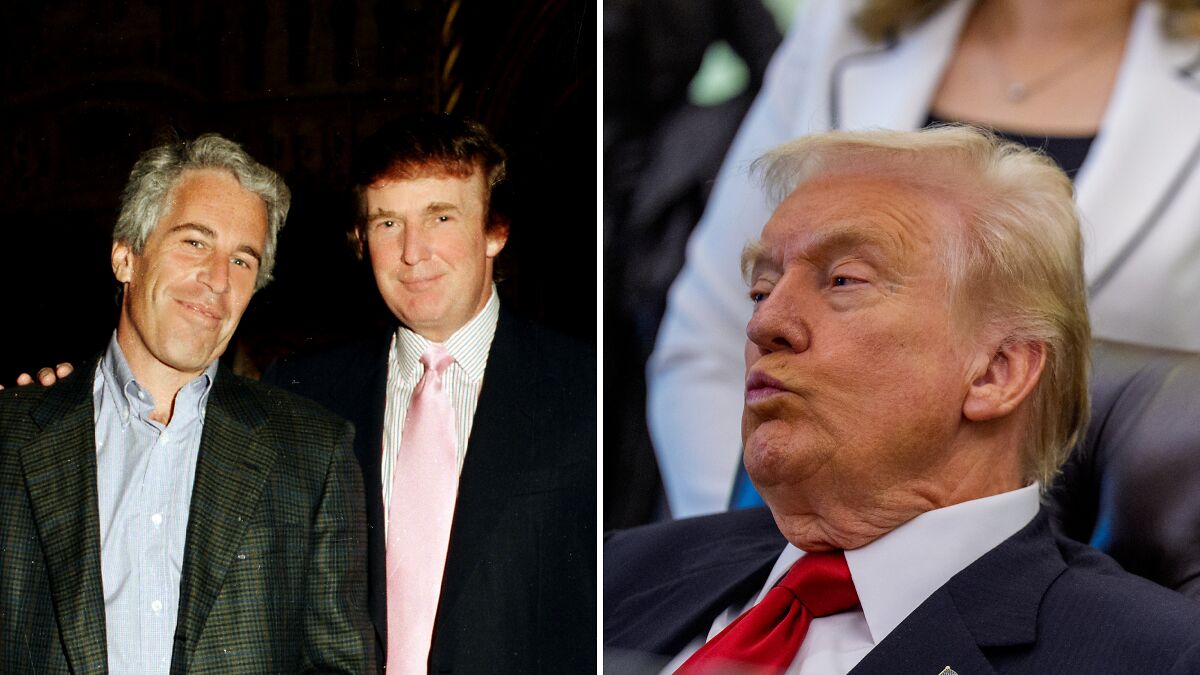
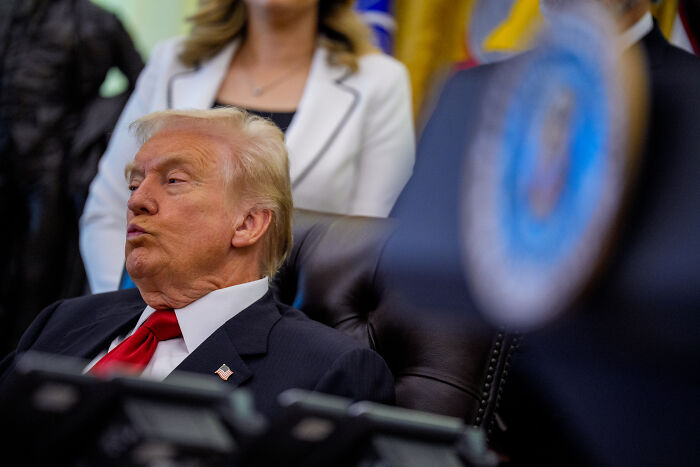

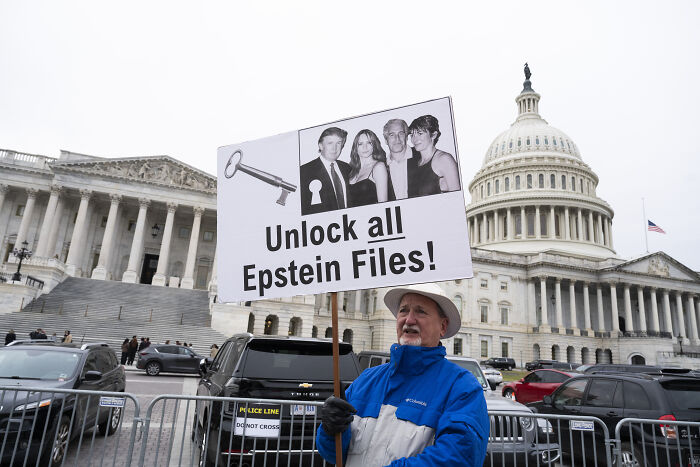
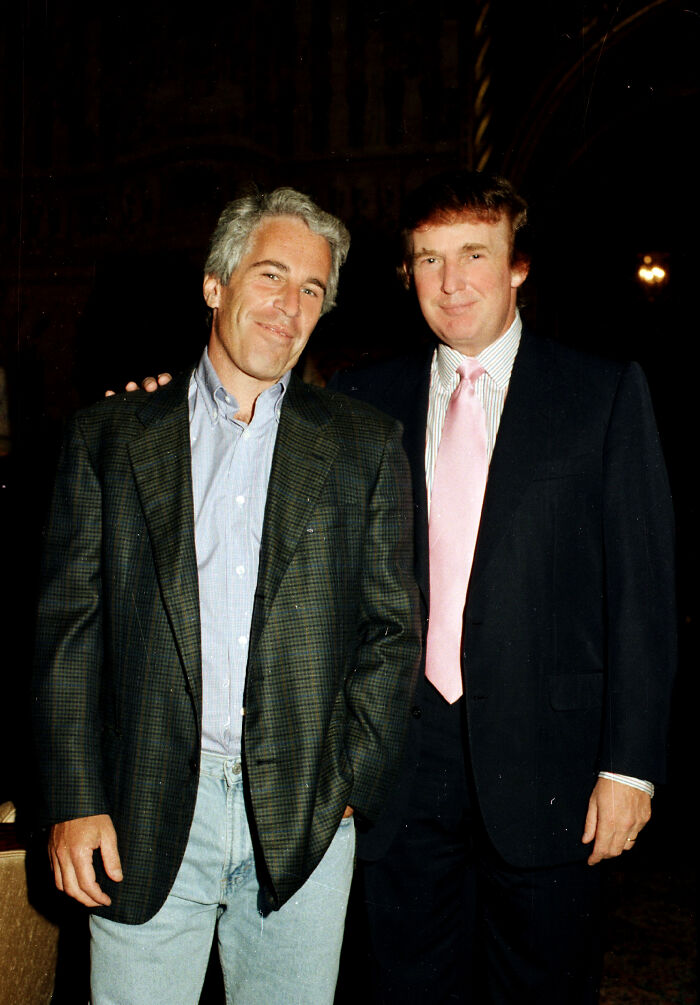
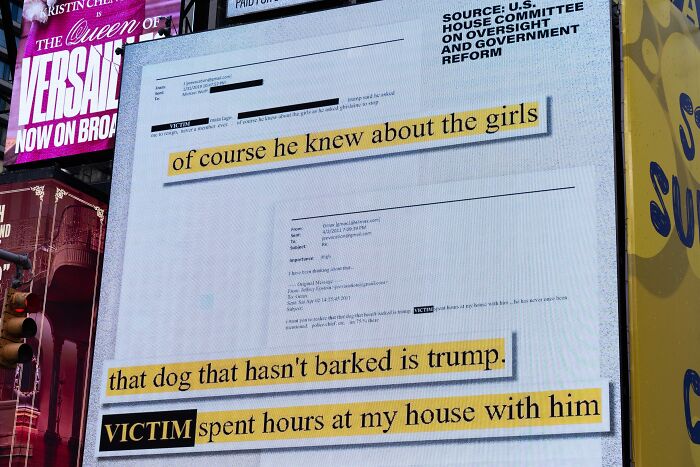



16
1